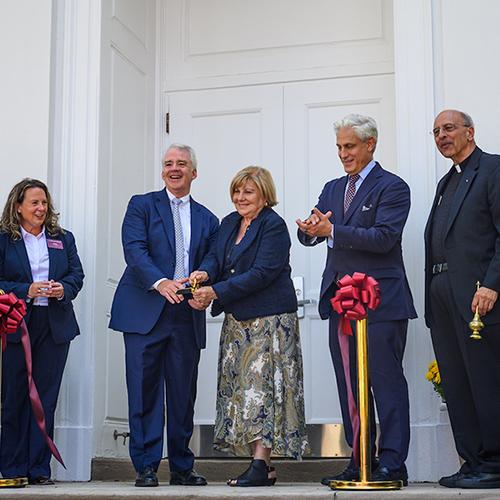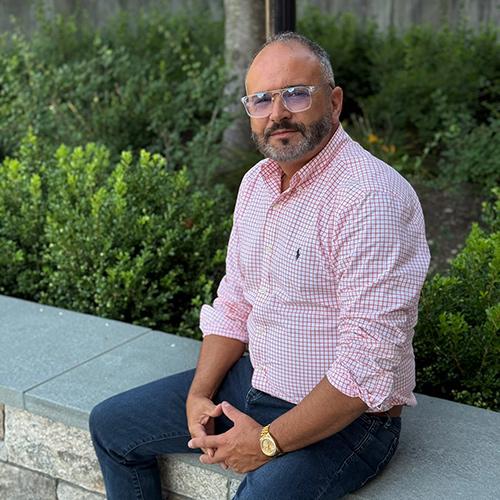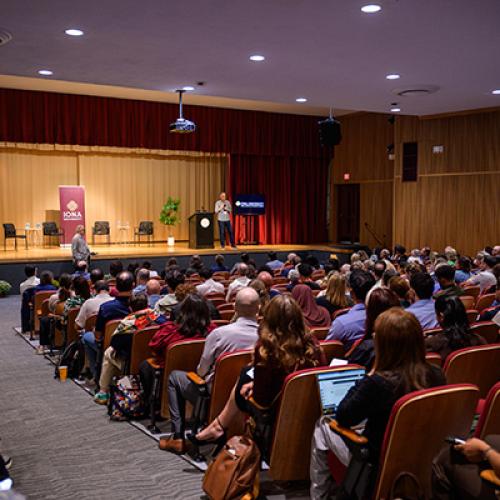Outreach, Clinical Training and Activities
Specialized Outreach To Neurodivergent Students
The interventions to be developed and delivered by Postdoctoral Fellows are intended to target the challenges of living independently in the college environment, specifically in the areas of independent living, social skills, and stress management. Sensory processing difficulties, emotional dysregulation, and social skills deficits can cause students with ASD to struggle in college even when they are functioning well academically. Often, self-care and time management are significant challenges, as are decoding and responding appropriately to social signals. Students with ASDs can feel marginalized, lonely, and disconnected. The sadness, anxiety, and frustration that may be associated with this experience may decrease the likelihood that students with ASDs will remain committed to pursuing academic goals, to develop their identities, and that they will remain optimistic about their potential for happiness.
Some examples of programs that Fellows may develop and deliver include:
- Structured social skills and/or life skills groups
- Workshops encouraging social skills development and peer engagement
- Assertiveness and confidence-building training
- Programs targeting the management of sensory processing problems
- Psycho-educational workshops helping students understand autism spectrum disorders
- Workshops role-playing real-world conversations with professors, employers, and advisors to support self-advocacy to achieve goals
- Collaboration with Career Development to provide mentoring and encouragement for career development during the college years
Direct Service Activities
The Counseling Center operates a triage and walk-in program to eliminate barriers to accessing care. Fellows conduct triage and walk-in appointments, developing critical skill sets including risk assessment, rapport building, and safety planning.
Clinicians perform intake evaluations with every student who initiates a course of treatment at the Counseling Center. Our comprehensive intake interview helps Fellows become acquainted with the process of evaluating presenting problems and generating diagnostic impressions. It also allows Fellows essential experience exploring social and developmental histories, academic challenges, identity formation issues, and cultural concerns.
The Counseling Center utilizes a flexible short-term approach. Postgraduate fellows are encouraged to build upon their preferred therapeutic modalities and receive supervision in approaches including psychodynamic therapy, CBT, and DBT. They also have opportunities for specialized training in approaches such as bereavement therapy and trauma therapy. Any clients with histories of learning and/or social differences are referred to the fellow for counseling, allowing for further specialization in this area.
Fellows will have the opportunity to meet with students who present to the counseling center in severe distress. In collaboration with a supervisor, Fellows gain experience in emergency psychiatric evaluation and determining the appropriateness of a referral to hospital-based services.
The Counseling Center is often contacted by College administrators, faculty, and staff, as well as by students’ friends and family members, and asked to provide guidance to intervene with a student perceived to be in need of help. When appropriate, the Fellow is asked to take part in these conversations and provide expert advice and referral to appropriate services. Fellows have a special responsibility to provide consultation to the administrators and Learning Specialists in the Iona programs supporting neurodivergent students.
Campus outreach programs offer interventions that promote psychological wellness at the community level. Providing such programs is a core aspect of the mission of any College-based counseling service. The Fellow has specific outreach goals to address the population of neuroatypical students and will also collaborate with staff to offer additional programs reflecting the current needs of the student body.
A core responsibility of the Fellow is to offer a structured group counseling experience, in the form of a pass/ungraded one-credit course, to neurodivergent students. Fellows will work with Counseling Center clinical staff and administrators of on-campus academic support programs to develop and deliver this course.
Clinical Training and Development Activities
-
Fellows receive a minimum of one hour weekly of intensive clinical supervision with a licensed psychologist or Mental Health Counselor, depending on the Fellow’s licensure requirements, and one hour of group supervision.
- Fellows have the opportunity to consult regularly with a specialist in clinical work with neurodivergence to further augment skills in this area.
Fellows participate in weekly professional development seminars, and are expected to deliver one didactic seminar per semester. These seminars are presented by Counseling Center staff as well as by outside providers with expertise in particular areas of clinical work. Examples of past didactic topics include:
- Trauma-focused therapy
- Stalking & obsessive following
- Working with grief
- Body dysmorphic disorder and negative body image
- Dialectical Behavior Therapy
- Suicide and risk assessment
- Clinical work with survivors of sexual assault and interpersonal violence
- Psychopharmacology
- Behavior therapy for anxiety
- Clinical work with LGBTQ-identified students
The staff of the Counseling Center meets weekly to discuss issues in ongoing therapy cases, maintaining a rotating schedule of case presentations and providing a space to discuss newly arising concerns. Fellows participate in case conferences both as presenters and providers of feedback. This offers essential experience in case formulation and accurate appraisal of client needs in the context of therapeutic relationships.
Fellows have time reserved in their weekly schedules to complete paperwork and to work on outreach projects. This allows Fellows to maintain a balanced schedule and to have adequate time to prepare interventions of excellence.
During low-volume periods such as student vacations and summertime, hours are blocked to allow for licensing exam preparation during the business day.


